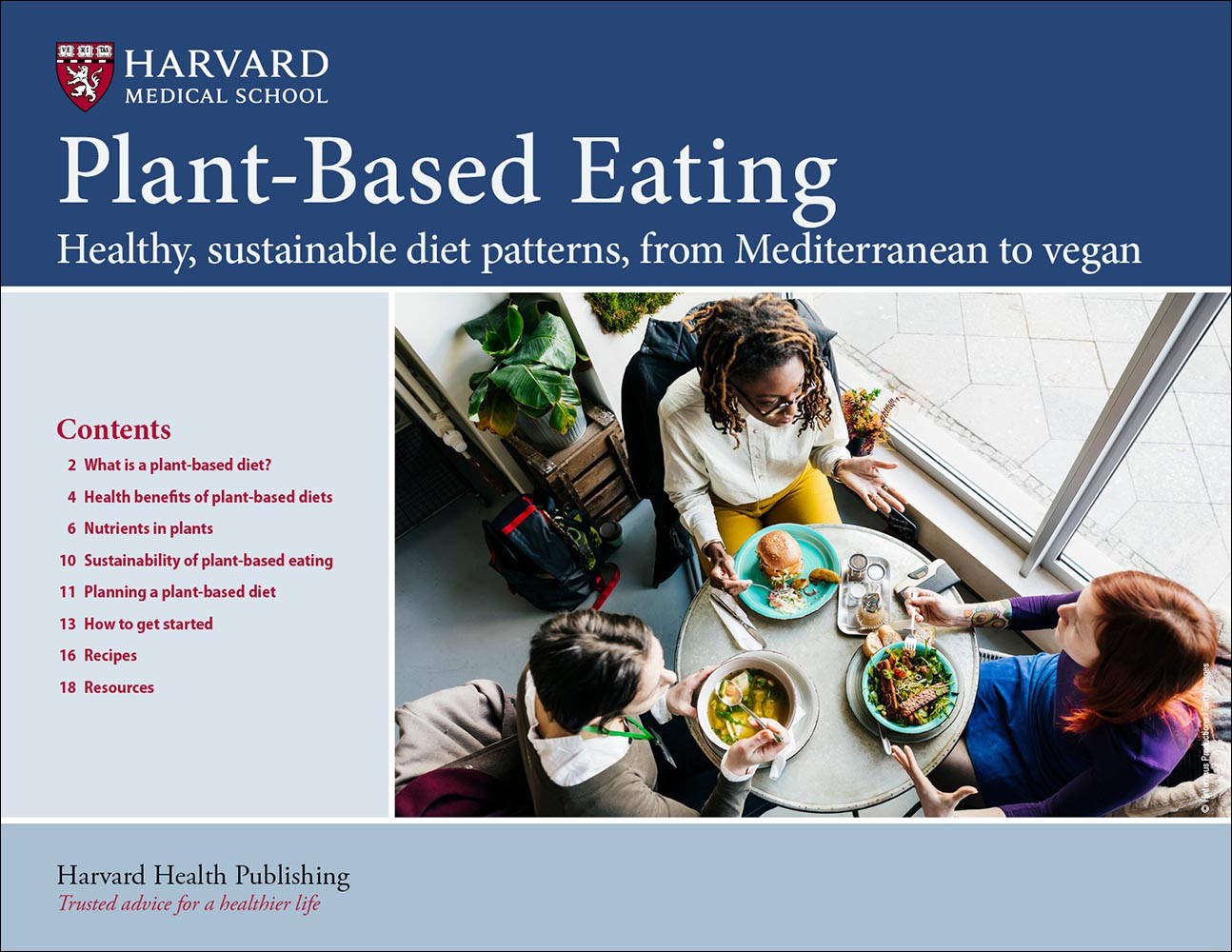Plant-based diets might fight leg or lung blood clots
News briefs
- Reviewed by Anthony L. Komaroff, MD, Editor in Chief, Harvard Health Letter; Editorial Advisory Board Member, Harvard Health Publishing

Eating a plant-based diet — one that's rich in legumes, whole grains, colorful fruits and vegetables, nuts, and seeds — is tied to lower risks for many diseases, such as heart disease, diabetes, and some cancers. A large study published in the December 2024 issue of JACC: Advances suggests such a diet might also be linked to lower risks of dangerous blood clots in the legs or lungs (venous thromboembolism, or VTE) — even if your genes make you more likely to get them. The research involved more than 183,000 middle-aged healthy people who were tested for genetic VTE risk and periodically answered questions about their diet. After 13 years, people who were best at sticking to a plant-based diet had a 14% lower risk of developing VTE, compared to those who didn't really follow this eating style. People with a high genetic risk had a 47% higher chance of getting VTE, but those who closely adhered to a plant-based diet still had a lower risk compared to those who didn't eat this way. The study was observational and can't prove that eating a plant-based diet protects people against VTE. However, it's plausible: solid evidence links a plant-based diet to better blood vessel health.
Image: © Alexander Spatari /Getty Images
About the Author

Heidi Godman, Executive Editor, Harvard Health Letter
About the Reviewer

Anthony L. Komaroff, MD, Editor in Chief, Harvard Health Letter; Editorial Advisory Board Member, Harvard Health Publishing
Disclaimer:
As a service to our readers, Harvard Health Publishing provides access to our library of archived content. Please note the date of last review or update on all articles.
No content on this site, regardless of date, should ever be used as a substitute for direct medical advice from your doctor or other qualified clinician.
















